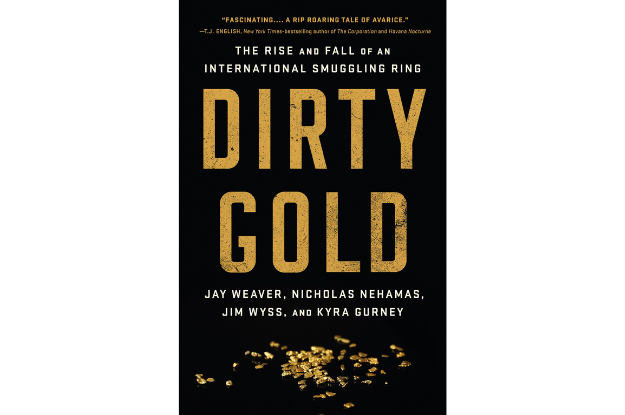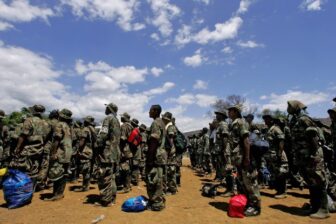For the Incas, gold was sacred. It had no material value, but represented the blood of their sun god, Viracocha. The Inca empire disappeared centuries ago, and gold has become the epitome of material wealth, attracting illicit players that leave behind a trail of violence and pollution. As we learn in Dirty Gold, smuggling of the precious metal has been an open secret in Latin America, with illegal shipments leaving the region and traded by foreign companies ‑ at the expense of local communities and the environment.
Dirty Gold: The Rise and Fall of an International Smuggling Ring uncovers an operation rooted in Peru, Ecuador, Chile, Colombia, and Miami as deep and as vile as the more well-known African blood diamond trade. The book is based on a Pulitzer Prize finalist-series published in the Miami Herald by reporters Jay Weaver, Nicholas Nehamas, Jim Wyss, and Kyra Gurney, that focuses on three amigos—three Americans working for a metal trading company based in the United States. In the book, the authors unveil the friends’ strategy to connect with illicit gold suppliers in Latin America and build a comfortable life for themselves, fully aware that their actions are illegal and of the wreckage they’re leaving behind.
The book is a stark warning that gold smuggling is not only being funded by drug cartels as yet another way to launder money. It is also destroying the environment and the lives of people involved in mining it. “For every ounce of gold the miners extract, researchers estimate they leave behind nine tons of waste,” write the authors. Gold mining is deeply connected to deforestation – one of the planet’s biggest environmental challenges – and mercury poisoning of water bodies and the soil affects people’s lives for generations.
The authors describe La Pampa – a town in the Peruvian Amazon and home to one of the hemisphere’s largest illegal gold mines – as a “hostile and alien planet.” The 30,000 to 40,000 people who work there seem to have been forgotten by the rest of the country. Dirty Gold describes a whole town, and in fact the province, Madre de Dios, abandoned by the authorities — at least at the time the authors were reporting on it. Everyone involved seemed to look away while those in charge collected the benefits.
The seriousness of the allegations and the depth of the problem come with an engaging narrative. The journey of the three amigos and how they became so successful is a fascinating story peppered with colorful characters. The local gold smugglers were some of my favorites: a twenty-something Chilean who out of necessity and ambition became the biggest gold seller in his country, and a Peruvian playboy whose illegal dealings were pretty obvious, yet he paraded fearlessly around Lima with his new Ferraris, unconcerned with showing off his criminal source of income.
The book gives a detailed account of how each of these characters was looped in by the three amigos, starting early on in their lives and narrating their path to become an international gold-smuggling ring. In many ways it does resemble Pablo Escobar’s own story, who makes an appearance in the form of inside jokes between the three amigos, who compared themselves to him.
A task force including local authorities, the FBI, and even the DEA eventually dismantled the three amigos’ operation — No spoilers here, the book’s name has the word “fall” in it. But aside from legal consequences for the men, Dirty Gold raises questions that remain unanswered: Who will take care of the people from La Pampa? Who will provide locals with medical assistance for life because of the high level of mercury in their bodies? Who will prevent new smugglers from moving in? And, who is willing to step in to stop an environmental disaster like this one?
__
Fuentealba is senior media relations manager at AS/COA





